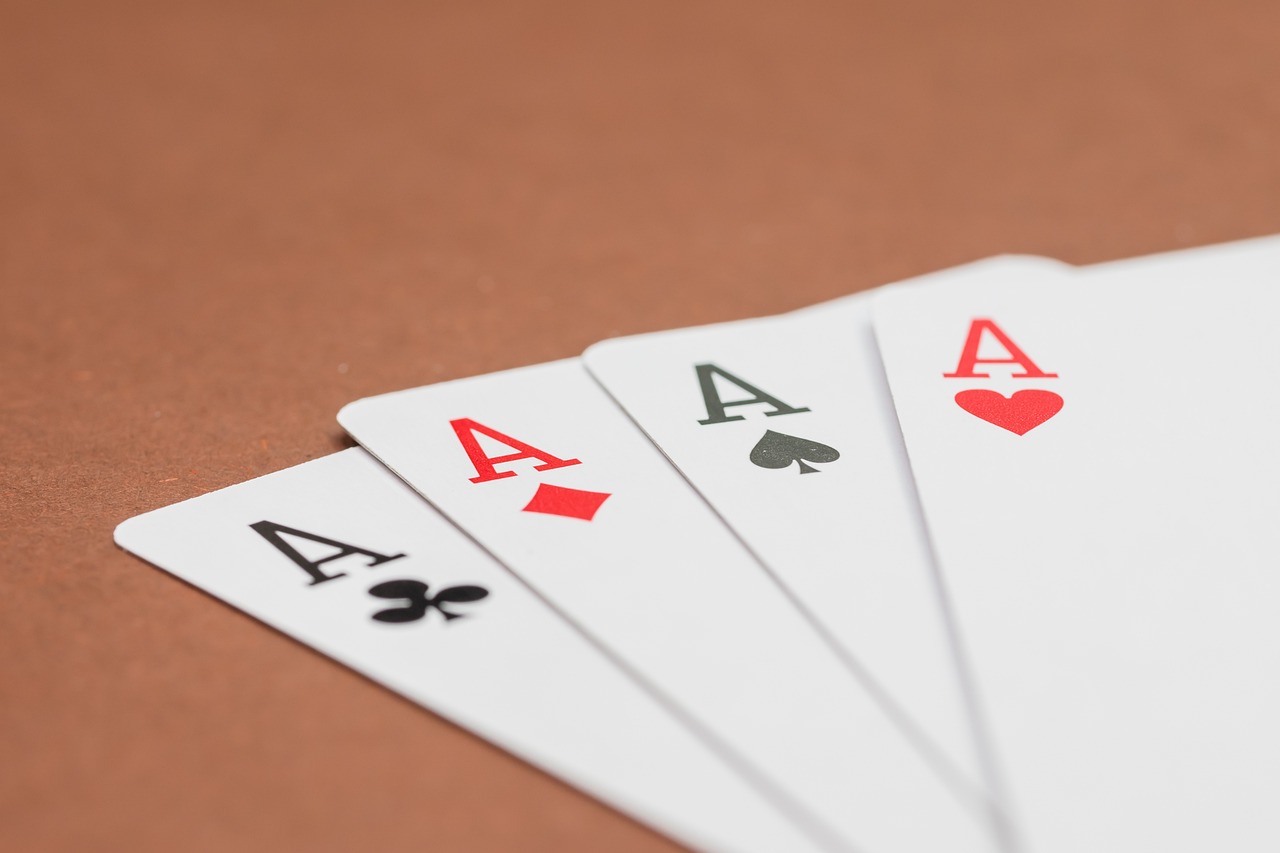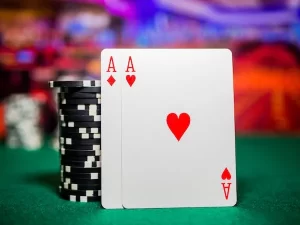This article aims to explore the role of psychology in poker. It will provide a comprehensive guide on how understanding human behavior and emotions can help players improve their game and make better decisions at the table. From managing tilt to reading opponents, psychology plays a crucial role in the game of poker.
The Importance of Emotional Control in Poker: How Psychology Can Help You Stay Focused
Emotional control is one of the most important aspects of poker. Players who can stay calm and focused under pressure are more likely to make good decisions and avoid costly mistakes. But this is easier said than done. The intense emotions that come with playing poker can be overwhelming, and even the most experienced players can struggle to keep their cool.
This is where psychology comes in. By understanding the psychological factors that influence our behavior, we can learn to control our emotions and make better decisions at the poker table.
One of the key psychological concepts in poker is the idea of tilt. Tilt refers to a state of emotional distress that can occur when a player experiences a series of bad beats or other setbacks. When a player is on tilt, they are more likely to make impulsive and irrational decisions, which can lead to even more losses.
To avoid tilt, it is important to recognize the signs of emotional distress and take steps to manage your emotions. This might involve taking a break from the game, practicing relaxation techniques like deep breathing or meditation, or seeking support from a therapist or other mental health professional.
Another important psychological factor in poker is the concept of cognitive biases. Cognitive biases are mental shortcuts that our brains use to make sense of the world around us. While these shortcuts can be helpful in many situations, they can also lead us astray when it comes to making decisions in poker.
For example, the confirmation bias is a tendency to seek out information that confirms our existing beliefs, while ignoring information that contradicts them. In poker, this can lead players to overestimate the strength of their hand or underestimate the strength of their opponents’ hands.
To overcome cognitive biases, it is important to be aware of them and actively work to counteract them. This might involve seeking out diverse perspectives and information, or using decision-making frameworks like the Kelly Criterion to help you make more objective decisions.
Finally, it is important to recognize the role that emotions play in our decision-making process. Emotions can be powerful motivators, but they can also cloud our judgment and lead us to make impulsive decisions that we later regret.
To avoid making decisions based solely on emotions, it is important to take a step back and evaluate the situation objectively. This might involve asking yourself questions like, “What are the facts of the situation?” or “What are the potential consequences of each decision?”
In conclusion, emotional control is a crucial aspect of poker that can make the difference between winning and losing. By understanding the psychological factors that influence our behavior, we can learn to control our emotions and make better decisions at the poker table. Whether you are a seasoned pro or a beginner, taking the time to develop your emotional intelligence can help you become a more successful and confident poker player.
The Power of Observation: How Psychology Can Improve Your Ability to Read Your Opponents
The power of observation is a crucial aspect of poker. It is the ability to observe and interpret the actions and behaviors of your opponents that can give you an edge in the game. Psychology plays a significant role in this process because it helps you understand the motivations and thought processes behind your opponents’ actions.
One of the most important aspects of psychology in poker is understanding the concept of “tells.” Tells are physical or verbal cues that players give off that can indicate the strength or weakness of their hand. For example, a player who is nervous or fidgety may be indicating that they have a weak hand. Conversely, a player who is calm and collected may be indicating that they have a strong hand.
Another critical aspect of psychology in poker is understanding the concept of “range.” Range refers to the set of hands that a player is likely to have based on their actions and behaviors. For example, if a player raises pre-flop, they are likely to have a strong hand. Understanding your opponents’ range can help you make informed decisions about your own hand and improve your ability to read your opponents.
Psychology can also help you understand the motivations behind your opponents’ actions. For example, a player who is bluffing may be doing so because they are trying to intimidate you or because they are trying to make up for a previous loss. Understanding these motivations can help you make informed decisions about your own hand and improve your ability to read your opponents.
One of the most effective ways to improve your ability to read your opponents is through practice. By playing poker regularly, you can develop a better understanding of the psychology behind the game and improve your ability to read your opponents. Additionally, studying the game and reading books on poker strategy can also help you improve your ability to read your opponents.
In conclusion, the role of psychology in poker is essential. It can help you improve your ability to read your opponents, understand their motivations, and make informed decisions about your own hand. By developing a better understanding of the psychology behind the game and practicing regularly, you can improve your skills and become a more successful poker player. So, the next time you sit down at the poker table, remember the power of observation and the role that psychology can play in helping you win.
The Psychology of Bluffing: Understanding the Mind Games Involved in Poker
Bluffing is the act of making a bet or raise with a weak hand in order to deceive your opponents into thinking you have a strong hand. It is a key strategy in poker, and one that can be very effective if used correctly. However, bluffing is also a risky strategy, as it can backfire if your opponents see through your deception.
Understanding the psychology of bluffing is essential for any serious poker player. One of the most important things to understand is that bluffing is not just about the cards you have in your hand. It is also about the image you project to your opponents. If you are seen as a tight player who only bets when you have a strong hand, your opponents are more likely to believe that you have a strong hand when you do bet. On the other hand, if you are seen as a loose player who bets frequently, your opponents may be more likely to call your bluff.
Another important aspect of bluffing is timing. Bluffing too often can make you predictable, and your opponents may start to call your bluffs more frequently. On the other hand, if you never bluff, your opponents may start to think that you only bet when you have a strong hand, making it harder for you to win big pots.
One of the keys to successful bluffing is to pay close attention to your opponents. Look for signs that they are weak or unsure, such as hesitation before betting or checking. If you sense weakness, it may be a good time to make a bluff. However, if your opponents seem confident and are betting aggressively, it may be best to wait for a stronger hand.
Another important aspect of bluffing is your own emotional state. If you are feeling nervous or anxious, it may be harder to pull off a successful bluff. On the other hand, if you are feeling confident and in control, you may be more likely to convince your opponents that you have a strong hand.
Ultimately, the key to successful bluffing is to be unpredictable. Vary your betting patterns, and don’t be afraid to mix things up. If you are always betting the same way, your opponents will eventually catch on and start to call your bluffs more frequently. By keeping your opponents guessing, you can increase your chances of success.
In conclusion, bluffing is a crucial aspect of poker, and understanding the psychology behind it is essential for any serious player. By paying close attention to your opponents, timing your bluffs carefully, and staying unpredictable, you can increase your chances of success at the poker table. However, it is important to remember that bluffing is a risky strategy, and should be used sparingly and with caution. With practice and experience, you can learn to master the art of bluffing and become a more successful poker player.
The Role of Confidence in Poker: How Psychology Can Help You Believe in Yourself
Confidence is a crucial factor in poker. It can help you make better decisions, bluff more effectively, and recover from losses. However, confidence is not something that can be easily acquired. It requires a deep understanding of your own abilities and a belief in your own potential.
One of the most effective ways to build confidence in poker is through practice. By playing regularly and analyzing your performance, you can identify your strengths and weaknesses and develop a better understanding of your own abilities. This can help you make more informed decisions and feel more confident in your game.
Another important factor in building confidence is mindset. Many players approach poker with a negative mindset, focusing on their losses and mistakes rather than their successes. This can lead to a lack of confidence and a fear of taking risks. By shifting your mindset to focus on your strengths and successes, you can build a more positive outlook and feel more confident in your abilities.
Psychology can also play a role in building confidence in poker. One technique that many players use is visualization. By visualizing yourself making successful plays and winning hands, you can build a sense of confidence and belief in your abilities. This technique can be especially effective when combined with positive self-talk and affirmations.
Another psychological technique that can help build confidence is mindfulness. By practicing mindfulness, you can learn to focus on the present moment and let go of negative thoughts and emotions. This can help you stay calm and focused during the game, which can lead to better decision-making and a greater sense of confidence.
Finally, it is important to remember that confidence is not a fixed trait. It can fluctuate depending on a variety of factors, including your mood, your opponents, and your recent performance. By recognizing these fluctuations and working to maintain a positive mindset, you can build a more consistent sense of confidence in your game.
In conclusion, the role of confidence in poker cannot be overstated. It is a crucial factor in making effective decisions, bluffing successfully, and recovering from losses. By practicing regularly, shifting your mindset, and using psychological techniques such as visualization and mindfulness, you can build a greater sense of confidence in your game. Remember, confidence is not a fixed trait, but rather a skill that can be developed and improved over time. With the right mindset and approach, you can become a more confident and successful poker player.
The Mental Game of Poker: How Psychology Can Help You Overcome Tilt and Stay in Control
Tilt is a term used to describe a player’s emotional state when they are frustrated, angry, or upset. It can be caused by a bad beat, a string of losses, or even a personal issue outside of the game. Tilt can lead to poor decision-making, reckless play, and ultimately, losing more money. This is where psychology comes in.
One of the most important aspects of psychology in poker is emotional regulation. Players who are able to regulate their emotions are less likely to go on tilt and more likely to make rational decisions. This can be achieved through various techniques such as deep breathing, visualization, and positive self-talk. By practicing these techniques, players can learn to control their emotions and stay focused on the game.
Another important aspect of psychology in poker is self-awareness. Players who are self-aware are able to recognize their own emotional state and adjust their play accordingly. For example, if a player is feeling anxious or nervous, they may need to take a break or adjust their betting strategy. By being self-aware, players can avoid going on tilt and make better decisions.
In addition to emotional regulation and self-awareness, psychology can also help players with decision-making. One technique that is commonly used is called “prospective hindsight.” This involves imagining different scenarios and outcomes before making a decision. By doing this, players can weigh the potential risks and rewards of each decision and make a more informed choice.
Psychology can also help players with their mindset. A positive mindset can lead to better decision-making and more success at the table. This can be achieved through techniques such as goal-setting, visualization, and positive self-talk. By setting goals and visualizing success, players can stay motivated and focused on their game.
Finally, psychology can help players with their overall approach to the game. This includes things like bankroll management, table selection, and game selection. By understanding their own strengths and weaknesses, players can make better decisions about which games to play and how much to bet. This can lead to more success and less frustration at the table.
In conclusion, psychology plays a crucial role in the mental game of poker. By practicing emotional regulation, self-awareness, and decision-making techniques, players can overcome tilt and stay in control. A positive mindset and a strategic approach to the game can also lead to more success at the table. Whether you are a beginner or an experienced player, understanding the role of psychology in poker can help you improve your game and achieve your goals. Psychology plays a crucial role in poker as it helps players understand their opponents’ behavior and make better decisions. By studying psychology, players can learn to control their emotions, read body language, and bluff effectively. A comprehensive understanding of psychology can give players an edge in the game and increase their chances of winning.




